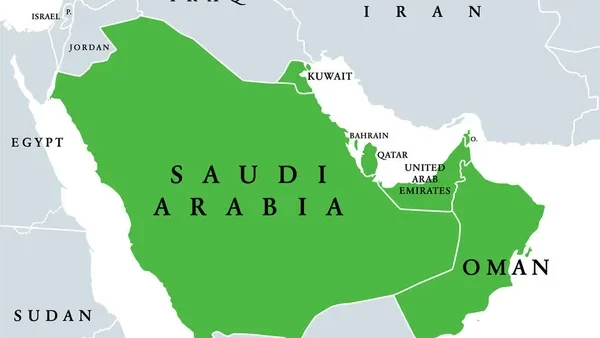Kuwait’s Economy Holds Firm Amid U.S. Tariff Challenges
Despite U.S. Trade Tariffs, Kuwait’s Economic Stability Remains Unshaken
The United States has recently imposed a baseline 10% tariff on imports from Gulf Cooperation Council (GCC) countries, including Kuwait. This policy shift has raised eyebrows globally, triggering concerns about potential impacts on trade relations, inflation, and broader economic stability.
However, economic experts and analysts agree that Kuwait is well-positioned to withstand this change. Due to its relatively low volume of exports to the United States and strong reliance on oil markets governed by OPEC+ agreements, the direct impact of this tariff is expected to be minimal on Kuwait’s overall economic performance.
Minimal Impact on Kuwaiti Exports
According to economic advisor and food security expert Mohammad Al-Furaih, Kuwait’s direct trade with the U.S. is quite limited in scope. Speaking to Arab Times, he stated that “the 10% tariff will have little effect on our economy, simply because our export volume to the American market is very small.”
Kuwait’s primary exports, especially crude oil and petroleum products, are largely sold under long-term contracts or pricing structures set by OPEC+ – which are not directly affected by individual tariffs imposed by other countries. Al-Furaih emphasized that oil continues to be the backbone of the Kuwaiti economy, and since it is not priced or traded based on bilateral trade policies like tariffs, Kuwait remains shielded from immediate consequences.
Furthermore, non-oil exports from Kuwait to the U.S., including plastic derivatives and chemical goods, form only a minor part of the trade balance. As a result, the imposed tariff, while a matter of concern on a global scale, does not constitute a major threat to Kuwait’s export-dependent sectors.
Global Economic Implications of U.S. Tariffs
While Kuwait’s direct exposure remains limited, the broader implications of this tariff policy could ripple through the global economy. Oil market expert Kamel Al-Harami warned that such trade barriers could increase inflation across international markets.
“These tariffs might not hit Kuwait directly,” Al-Harami noted, “but they set a precedent. If other countries start to retaliate with similar protectionist measures, we could see increased costs, disrupted supply chains, and higher prices across many sectors.”
The fear of a global trade conflict looms large, with experts cautioning against tit-for-tat measures that could lead to decreased trade volumes, slower growth, and a less stable international economy.
For oil-producing countries like Kuwait, the indirect effects could come through a rise in production costs and a slowdown in global energy demand. Any sustained disruption in global trade could affect commodity prices, particularly oil, which remains sensitive to shifts in international sentiment.
Kuwait’s Economic Outlook Remains Positive
Despite these global uncertainties, Kuwait’s economic outlook is stable, if cautious. According to a recent report by the International Monetary Fund (IMF), Kuwait’s GDP is expected to contract by 2.8% in 2024. This downturn is primarily attributed to OPEC+ oil production cuts, rather than trade-related shocks.
The IMF, however, projects a rebound in 2025, forecasting growth of 2.6% as oil production returns to normal levels. Additionally, the non-oil sector – including construction, finance, tourism, and technology – is anticipated to gradually improve as the government continues to invest in diversification strategies.
The country’s fiscal reserves and relatively low public debt provide a buffer against external shocks. Kuwait also benefits from a well-established sovereign wealth fund, which serves as a financial safety net during global downturns.
Diversification Strategy Gains Momentum
In recent years, Kuwait has intensified efforts to diversify its economy and reduce reliance on oil revenues, in line with the broader GCC economic vision. One major step forward has been the approval of a new public debt law, which allows the government to borrow funds for infrastructure development and economic modernization.
The funds raised are earmarked for large-scale projects such as the expansion of Kuwait International Airport, the construction of a new mega-port on Boubyan Island, and the enhancement of digital infrastructure across the country.
These investments aim to stimulate job creation, attract foreign investment, and support private sector growth. Experts believe that if implemented effectively, these initiatives could play a vital role in transforming Kuwait into a more diversified and sustainable economy over the long term.
However, Al-Furaih and other experts caution that success will depend on transparency, accountability, and strong public-private collaboration. “It’s not just about spending,” he said. “It’s about spending smart, measuring impact, and staying committed to long-term structural reforms.”
Strategic Resilience in a Changing World
Kuwait’s experience highlights an important lesson in today’s volatile global economy: resilience is not just about size or strength – it’s about strategy, foresight, and adaptability.
While global trade tensions, rising tariffs, and inflation pose significant risks, Kuwait’s conservative financial policies, solid foreign reserves, and proactive diversification measures give it an edge over many other economies in the region.
In the months ahead, Kuwait is expected to monitor global developments closely while continuing its internal reforms. The government’s focus remains on fostering innovation, boosting private enterprise, and creating a business-friendly environment that can weather external shocks and capitalize on emerging opportunities.
Conclusion
The 10% tariff imposed by the U.S. on Kuwaiti imports may seem like a headline-grabbing move, but in reality, its impact on Kuwait’s economy is limited. Thanks to its low exposure to the American market, strong oil sector fundamentals, and forward-looking economic planning, Kuwait remains in a stable position.
The key challenge now lies in staying the course on diversification, reform, and sustainable growth. As the global economy grapples with rising protectionism, Kuwait’s calm, calculated response may serve as a model for how small, resource-rich nations can safeguard their futures in an increasingly complex world.
Do follow gulf magazine on Instagram
for more information click here


